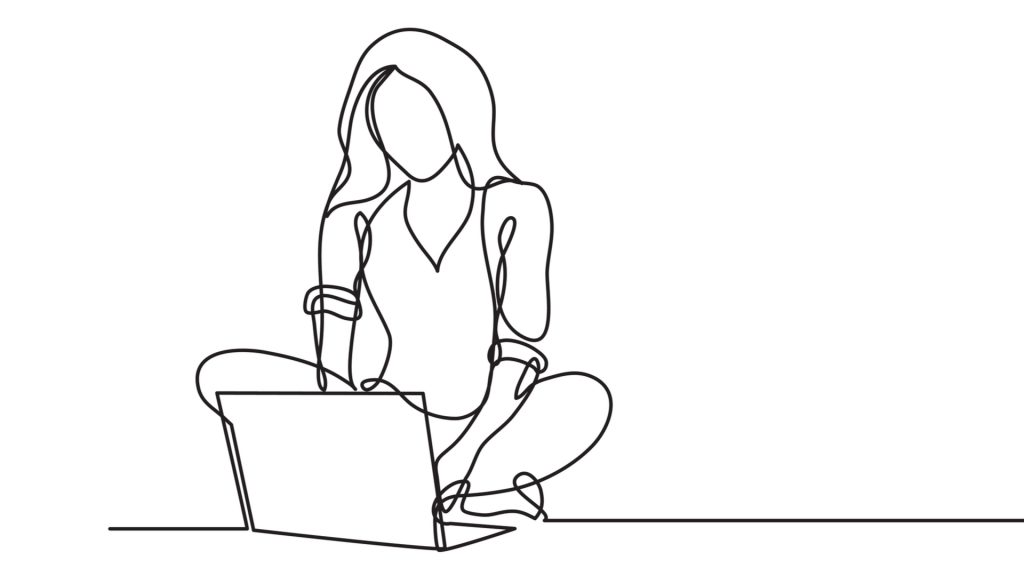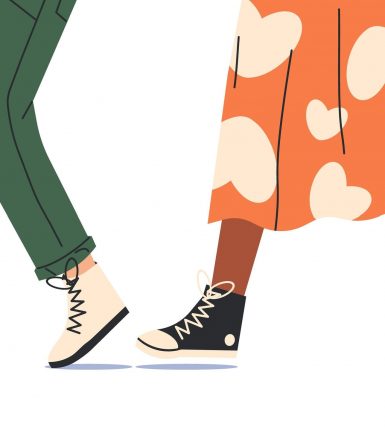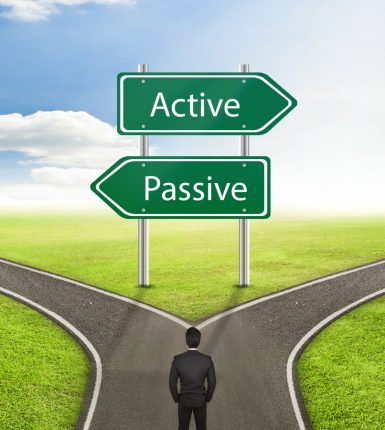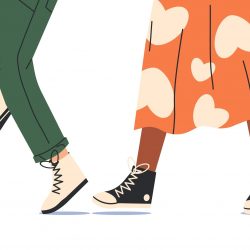These are my patient thoughts on how physiotherapy practices might change and improve post COVID-19.
Unusually for me, but then everything is unusual just now, this will be a ‘dynamic’ blog which I will frequently update as my thinking develops during this crisis. (Sorry – this means you may want to read the blog more than once. I will try to only add in complete sections and highlight which sections I’ve added in on Twitter.)
Everything has changed

The world has been turned upside down by COVID-19. Many people have lost their lives and health services are struggling to cope. Millions of people across the globe are practising social distancing, and many are in lockdown. Everything has changed. The world will never be the same again.
Many physiotherapists in the UK are now working ‘on the front line’ in order to help save as many lives as possible from the virus. Most of those that aren’t working on the front line are no longer seeing patients face to face. Their patients have either been quickly discharged, or are being supported through either telephone or video consultations.
Everyone knows that life will never be the same again after this COVID-19 pandemic and crisis. No-one currently knows exactly how life will change.
There is no doubt that there has been a great deal of good come out of this dreadful disaster. Communities are supporting each other in a way I have never witnessed in my life time. People are talking about ‘working together’, and are doing it! The unpleasantness in politics seems to have been put to one side, and countries are trying to support one another to combat the virus. The frantic pace of life has slowed and many people are enjoying returning to a more basic life.
However this is against a backdrop of death, illness and concern, and for some loneliness, employment loss and financial worry. And much more.
Whilst not wanting to minimise the dreadful problems that COVID-19 has brought to the world, in this blog I hope to look forward and consider what physiotherapy might look like for me as a patient when life has returned to the ‘new normal’, maybe this time next year.
Physiotherapy will never be the same as it was, it cannot completely return to it’s old practices, too much has changed even in the few weeks since the COVID-19 crisis really took hold in the UK. This is a once in a lifetime opportunity for the physiotherapy profession to move forward and grow. I hope it will do this, and blossom, and I hope that as decisions are being made at a relatively fast pace within the profession, the profession will remember to properly consult with, and work in partnership with, their most important stakeholders, patients.
Telehealth or e-consultations
With the abrupt advent of physiotherapists no longer being able to see ‘routine patients’ face to face, technology has been utilised in order to retain contact and provide support. Increased use of telephone support has occurred, but perhaps most importantly, and for many physiotherapists radically, has been the widespread adoption of video-conferencing.
The use of telephone and video for healthcare consultations is commonly known as ‘telehealth’, but this isn’t a term I personally like. The name doesn’t to me reflect the importance of video consultations, and so until a better term is adopted by the healthcare profession, or I think of a better one, I will use the term ‘e-consultations’.
I have no doubt that the first time adoption of, or increased use of e-consultations during these difficult COVID-19 times has been fraught with difficulty. There will undoubtedly have been technical difficulties for both physiotherapists and patients and there will have been administration difficulties. But perhaps overriding some of these will have been the difficulties associated with ‘change’ and the need for a physiotherapist and patient to work in different ways. Neither will have been ‘trained’ to work in this way, and for most their first experience will have occurred during these COVID-19 times. Some physiotherapists/patients will have taken to e-consultations like a duck to water, others will have struggled.
Whilst not minimising these difficulties, I wish to move past these teething problems and look forward to a time when the country is no longer in lock-down and hopefully no longer needing to socially isolate. By then I hope these teething problems will have been largely ironed out.
Should we return to face to face appointments only?

I personally think it would be a mistake for physiotherapists to simply return to their old practices post COVID-19, which for many meant they only provided face to face consultations. I believe we should build on the positives that have come out of this crisis and I believe going forward we should develop a ‘hybrid’ model of consultations. There should be a mix of face to face consultations and e-consultations (both video and telephone) available to patients. There should be an element of choice for patients.
Going forward it is my view that physiotherapy clinics should ensure they have the technology required to effectively conduct video consultations, and that physiotherapists further develop both their technical and clinical skills in order to provide good and effective care whilst utilising e-consultations as part of their offer to patients.
Why video consultations rather then telephone?

As far as e-consultations are concerned I believe that video consultations should be ‘the norm’ rather than telephone consultations, although I accept in a few instances telephone consultations may be preferable. Some patients may not either have access to the Internet or not have sufficiently good access, and a very few patients may be very resistant to using video for their physiotherapy consultation and would prefer to use the telephone.
Physiotherapy is fundamentally about caring for people, and there is no doubt in my mind that this care is much easier to provide when both the patient and physiotherapist can see each other, rather than just hear each other. I’m not sure as a patient I could develop, or retain, a good therapeutic alliance with my physiotherapist through telephone consultations, whereas I believe I could through video consultations. In my view a good therapeutic alliance is an integral and important part of good healthcare.
There are also times when my physiotherapist will need to visually see the injured/affected part of my body and I am much more likely to understand how to do any exercises required if I can visually see my physiotherapist demonstrating them.
To me it’s just a no-brainer, the future of e-consultations is with video consultations and not telephone consultations.
Why do I want to move forward from the face to face only model?

I have accessed a lot of physiotherapy over the last 11 years. I have seen physiotherapists based in a hospital, a GP surgery and in private practice. Before COVID-19 all my consultations had been face to face.
I have encountered various difficulties in terms of getting to face to face physiotherapy consultations. During the initial weeks following my injury I found travelling hugely painful and difficult. I couldn’t drive for some time and so my husband had to take time out of work to take me.
Once I could drive and I had returned to work in a school I had to take maybe two hours out of the school day for a 30 minute or less consultation. For a teacher taking two hours out of a school day is not logistically easy!
I now work part time on a self-employed basis and I find I often have to decline work on a day that I have a physiotherapy consultation (I usually get offered a full day of work in a different part of the South West and so cannot just take an hour out of it to attend a physiotherapy consultation). Losing a days pay makes my physiotherapy consultations very expensive!
When I am at home and able to attend consultations relatively easily, I need to drive to the physiotherapy clinic and then pay parking. For me the time to get to the clinic is maybe only 20 minutes, and I can afford the parking fees, however for others the distance is much greater as is the financial impact .
Once I get to the clinic I might be waiting a while for the consultation. A clinic environment, especially in a hospital, isn’t necessarily the best for me, and I suggest for others. For me the waiting room chairs increase my pain. I am exposed to the illnesses of others, as they might be to me. I can be a relatively nervous patient, and sometimes the environment has increased my nervousness around the consultation concerned.
Although I truly value face to face consultations, I am not sure that all my physiotherapy consultations need to be face to face. Looking back on the many physiotherapy consultations I have experienced I think some of them could have been just as effective as e-consultations. I do want to stress though just some of them, not all of them!
There are certainly times when it would have been helpful to me as a patient, if for no other reason than a practical one, to have been given the option of an e-consultation.
Are e-consultations better than face to face?
I’m not convinced that the quality of a physiotherapy e-consultation is going to be as good, and certainly not better, than one conducted face to face. My personal argument for continuing the provision of e-consultations post COVID-19 is more around the practical and financial difficulties that I as a patient might experience in attending face to face consultations. It is about patient choice.
It is also about enabling patients who might not otherwise be able to access physiotherapy to do so. There are some patients who are not able to leave their home through mental health difficulties, and others that just cannot make the physical journey or pay the costs. For some people e-consultations may provide their only way of accessing physiotherapy care.
The option of e-consultations for patients would also enable access to the particular expertise of a physiotherapist in a different part of the country, or even the world.
The hybrid model of consultations I would like

If I were to start a course of physiotherapy with a new physiotherapist I would like at least my first consultation to be face to face. I think being in the same room as my physiotherapist better facilitates a good therapeutic alliance being forged, and allows for a better physical examination, including ruling out any red flags.
I strongly believe having at least some face to face consultations with my physiotherapist is important.
Having met my physiotherapist I would like to discuss with them what format our subsequent consultations might take. It could be that we decide together that all consultations need to be face to face, or it could be that we decide that some could, and maybe should, be video consultations.
I would like consultation arrangements to be flexible, so that if I was due for an e-consultation and I decided (in sufficient time) that I felt that a face to face was needed, then I could re-book that consultation accordingly. Likewise if the physiotherapist felt that it was important to change an e-consultation to a face to face one for any reason then they could ask for a change of format too.
I would like the system to be flexible with an element of choice.
Safeguarding concerns
I do however have some concerns about safeguarding in terms of e-consultations. I can see that there could be a very, very small number of clinicians, or maybe more likely people pretending to be clinicians, that could take advantage of the medium of video consultations.
I can see dangers in me as a patient simply responding to an advert on the Internet from someone putting themselves forward as a physiotherapist, and entering into video consultations with them.
I don’t wish to go into any further detail about this, apart from to highlight the need for physiotherapy safeguarding and other policies and regulations to be re-visited, and maybe updated, post COVID-19. And for the Physiotherapy community as a whole to consider how they will ‘police’ their profession.
Am I asking for the impossible?
I realise that as a patient I have little understanding of the challenges that physiotherapists face in offering e-consultations as part of their practice. I’m guessing there are challenges around data protection, cost of equipment and sufficient access to equipment amongst others.
My thoughts are obviously based on the UK where I live, and I’m guessing there will be different challenges elsewhere in the world that I have no real understanding of.
Despite recognising there will be challenges, and certainly not trying to minimise or ignore them, my hope is that post COVID-19 physiotherapy e-consultations will continue. I guess time will tell.
My thoughts on post COVID-19 to be continued….
As mentioned at the start, unusually for me, this is a ‘dynamic’ blog. If there is one thing that the disaster that is COVID-19 is doing for many of us it is getting us to think through not only our values, but how we might want to help shape the landscape and make improvements post COVID-19. As my thinking develops I will add further to this blog.
Tina
www.livingwellpain.net
@livingwellpain











Thank you for sharing that physiotherapy clinics are addressing the COVID-19 pandemic and are making the necessary adjustments to provide a safe service for their customers. I appreciate that this post mentioned that physiotherapy clinics are providing e-consultation to provide an earlier consultation before coming in as well as offering booking services to reduce exposure to other people. My wife needs physiotherapy to help with her backaches, and I will share this information with her.
Pleased this was helpful. 😊😊😊
Tina